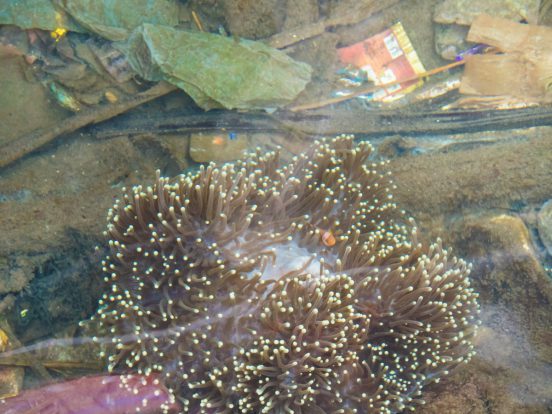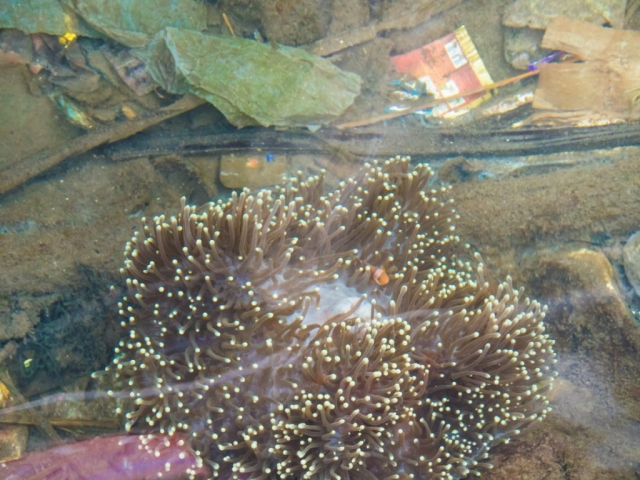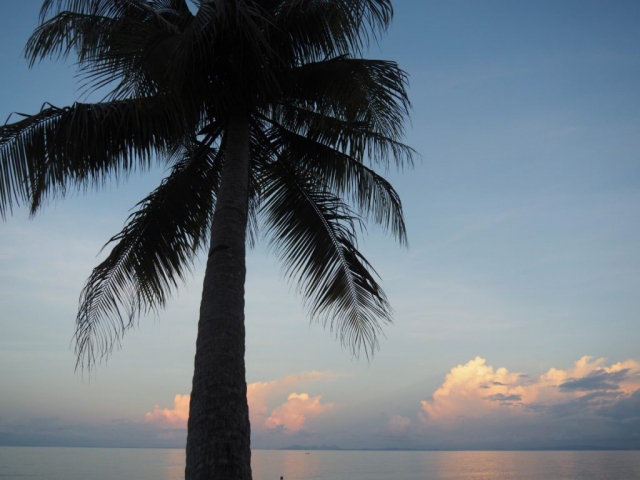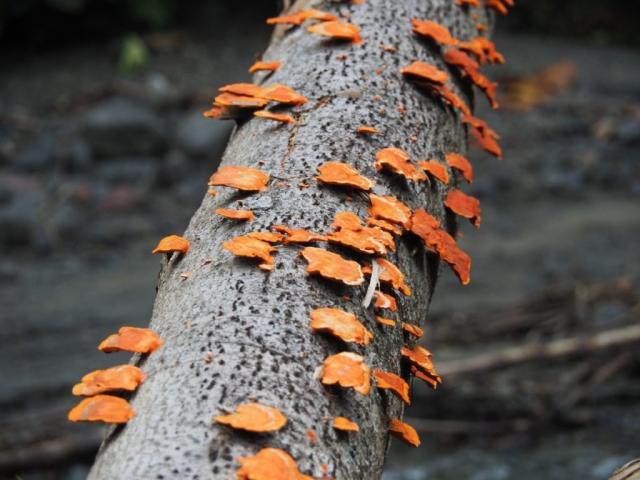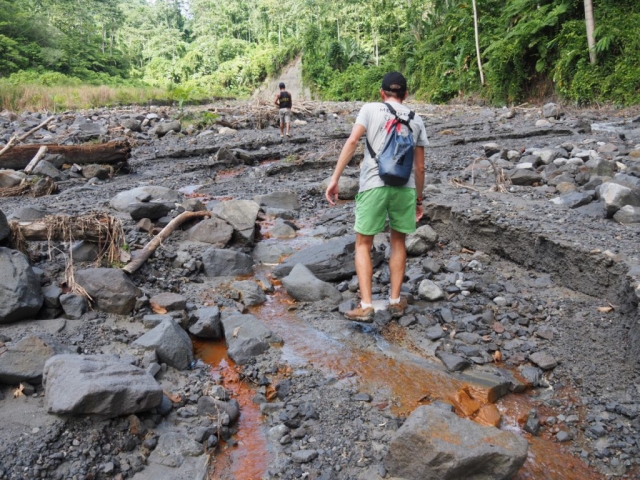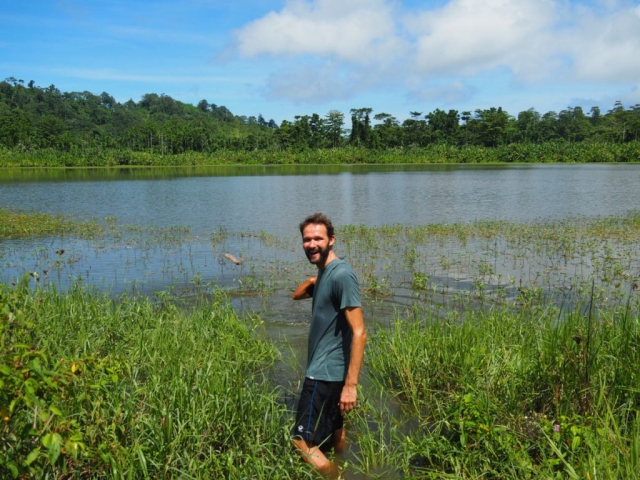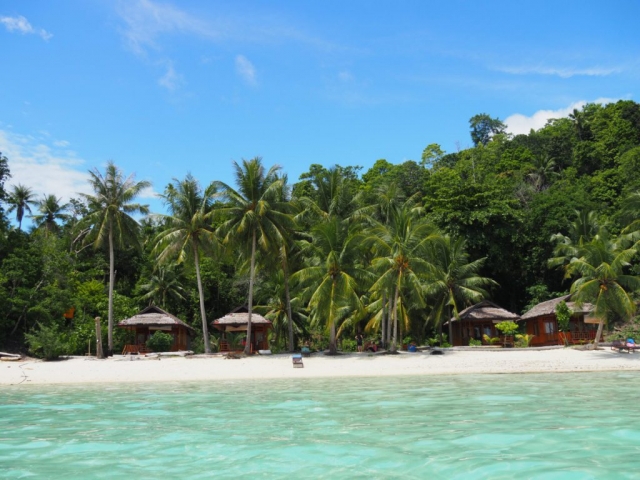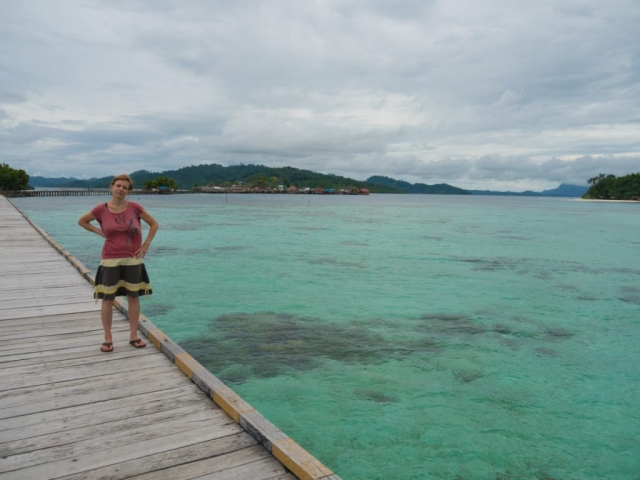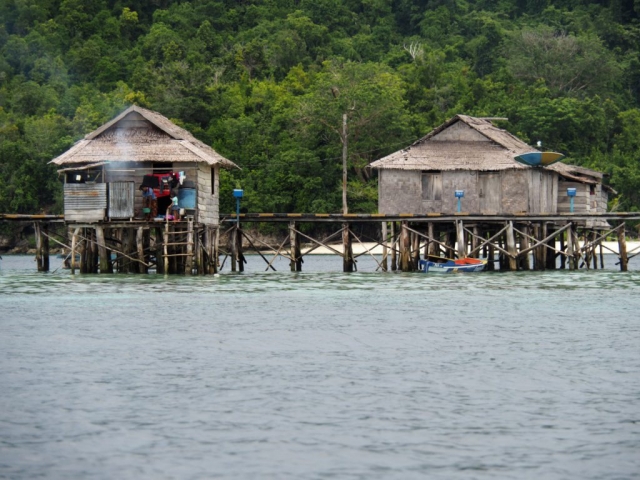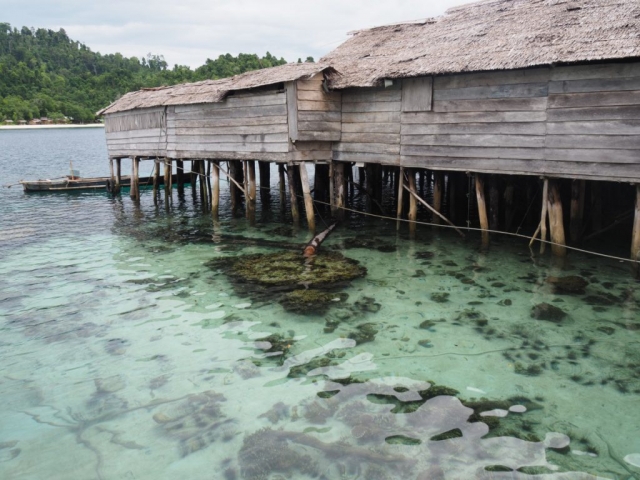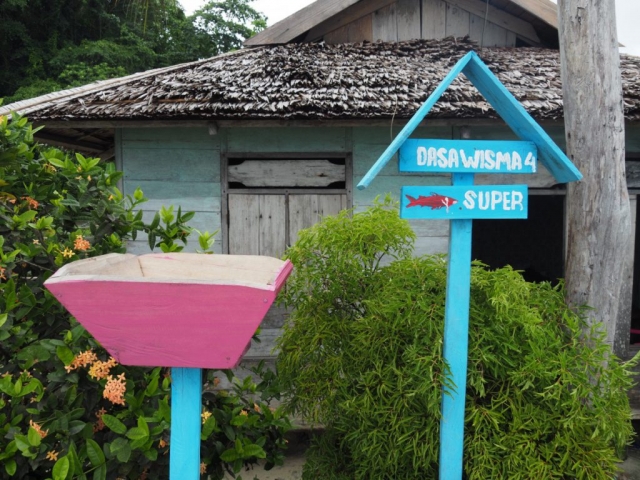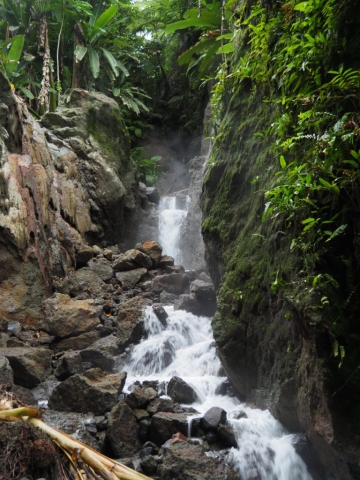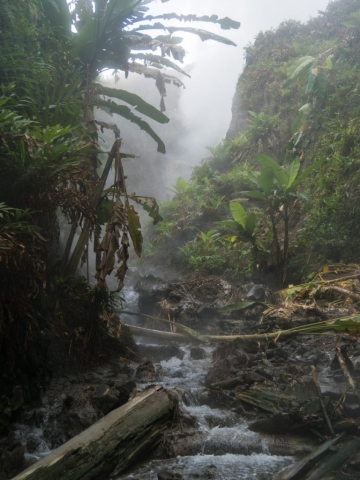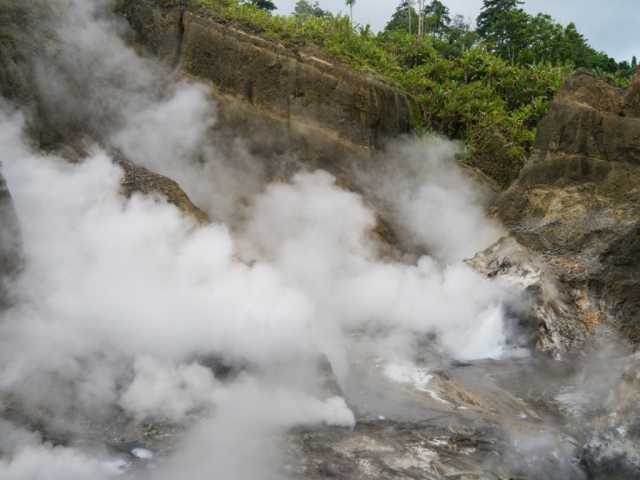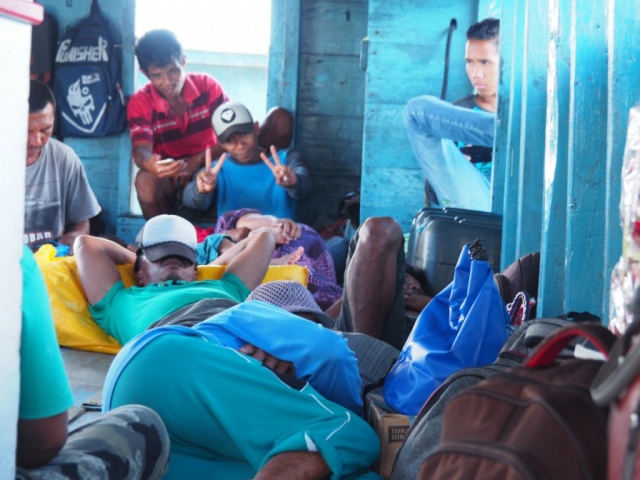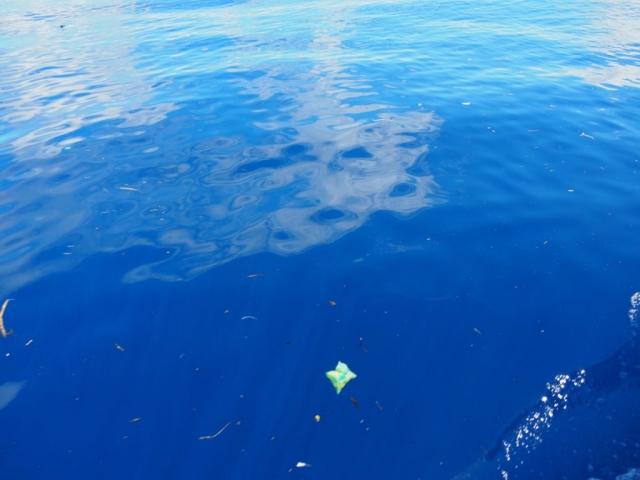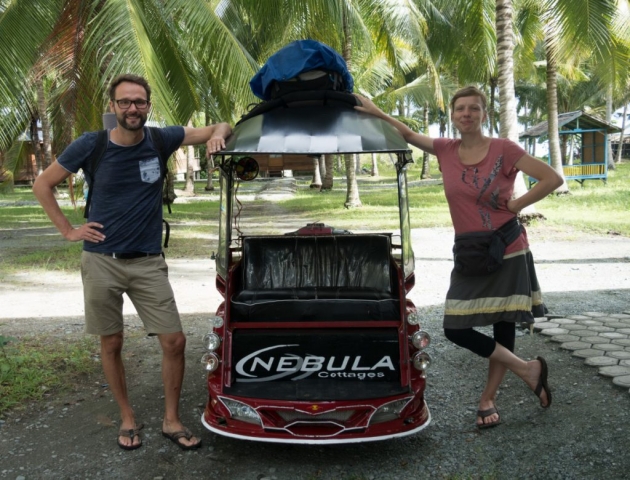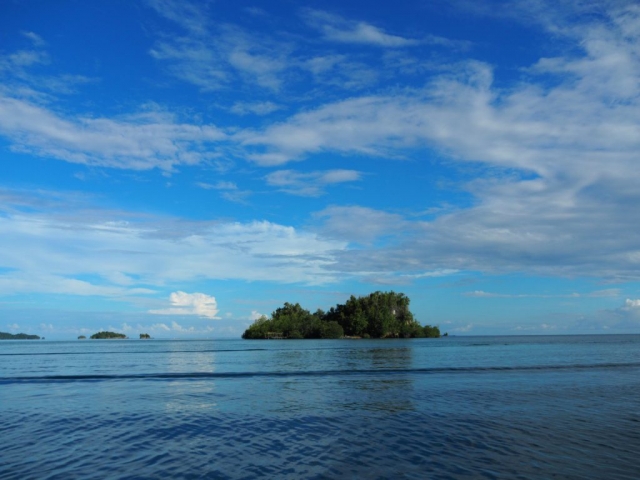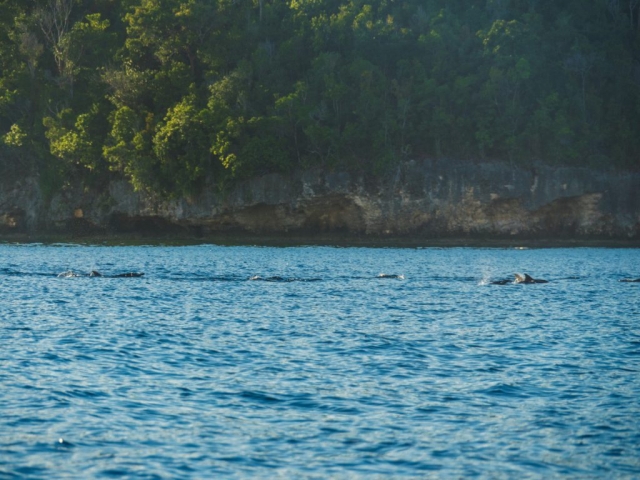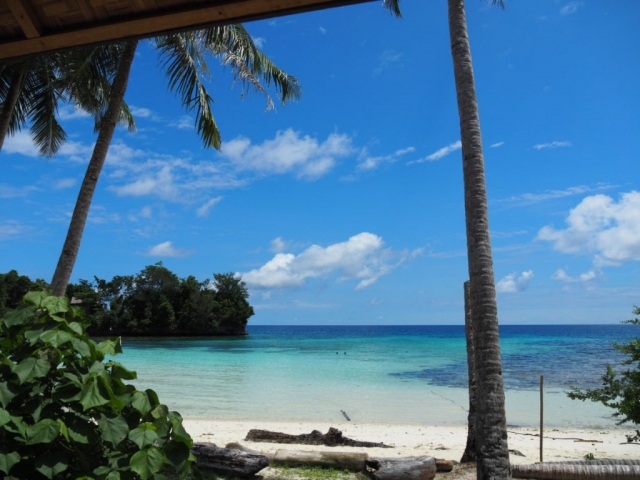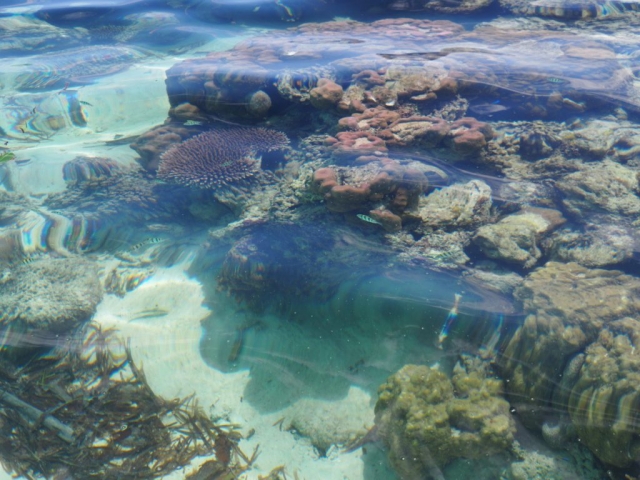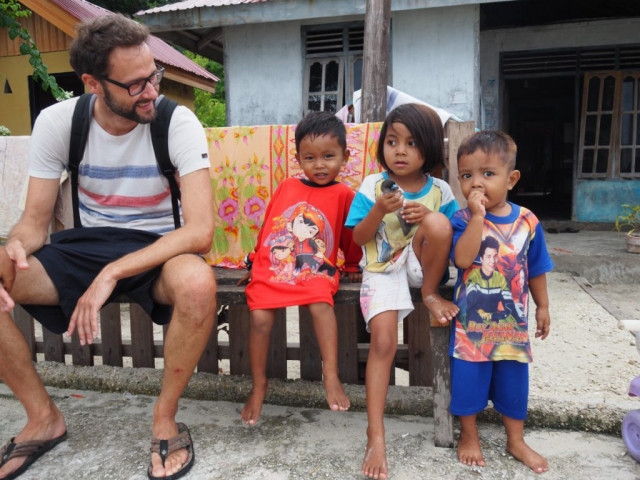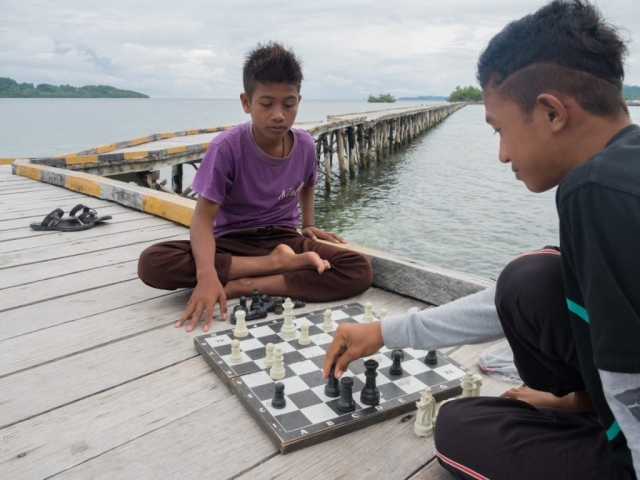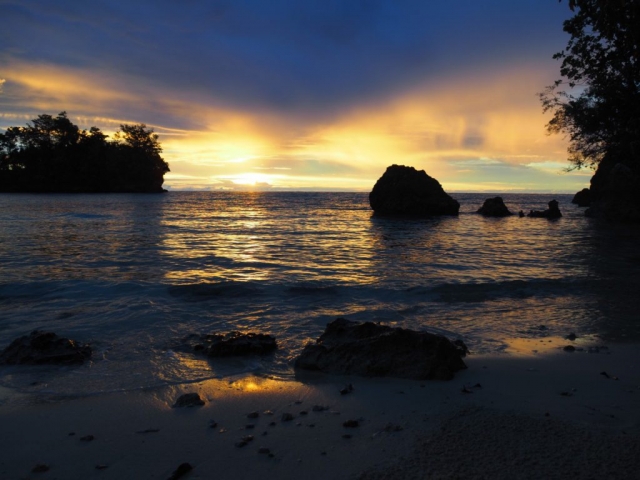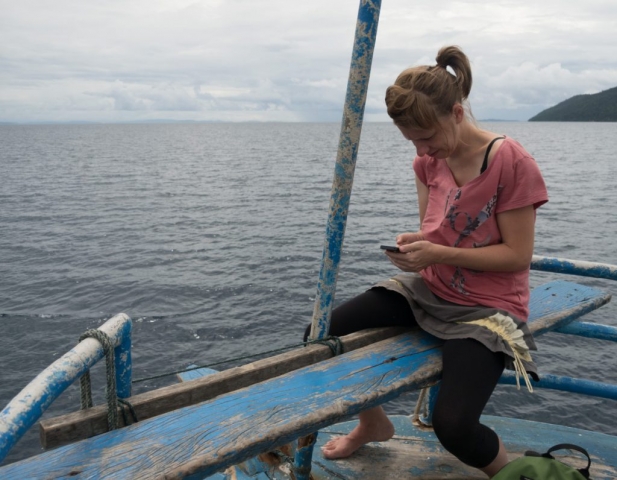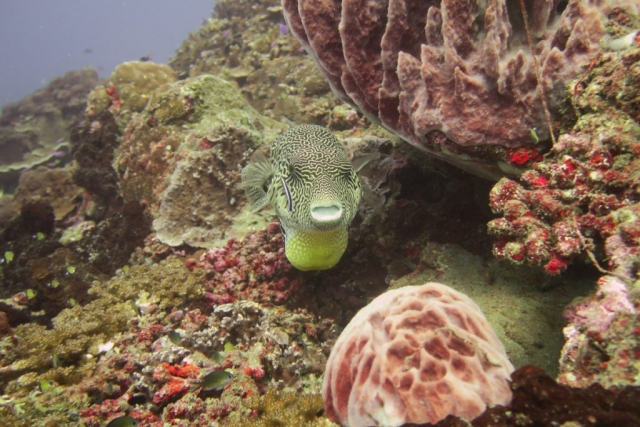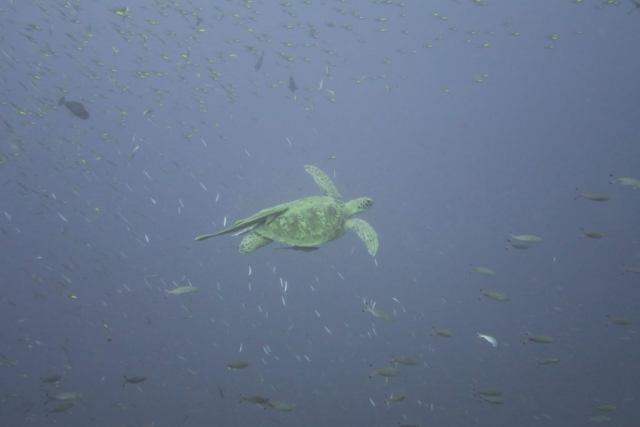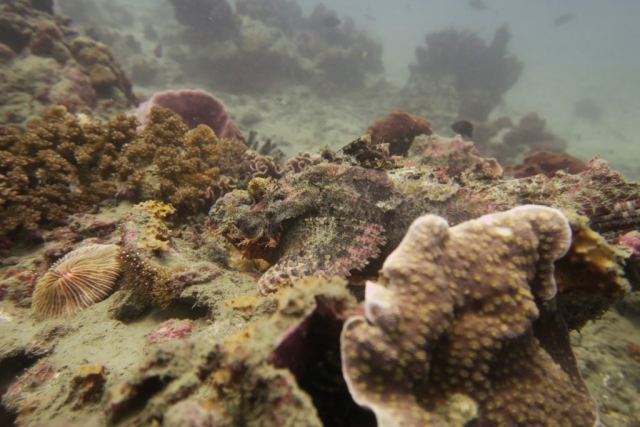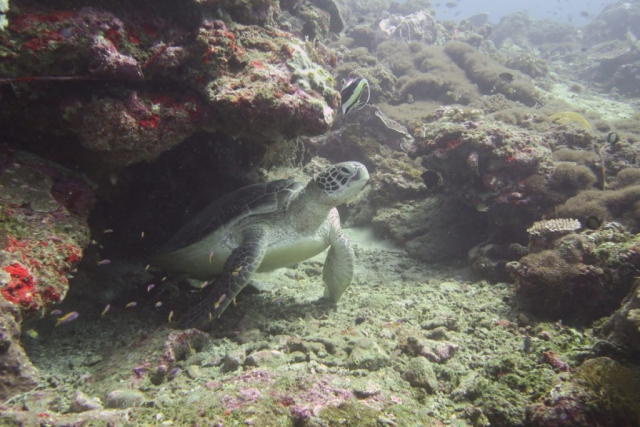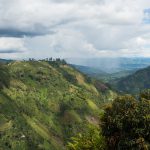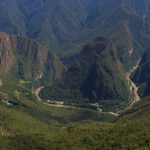Untouched nature, that is the desire of many travelers. Well some amenities like a roof over your head, something tasty to eat and maybe a diving school are also nice to have. And immediately that’s a contradiction in itself. In the age of social media and travel blogs, if there is a beautiful place, a lot of people get there pretty quickly and then the problems begin. Our goal should therefore be further away, harder to reach.
The Togean Islands are such a promising place. There is no airport and no mobile phone reception. The nearest airport on the island of Sulawesi can only be reached via several non-coordinated stopovers, that is if none of the flights are cancelled. From the airport to the ferry you spend countless hours with Indonesian techno music and wicked driving maneuvers. After two days you finally reach the ferry. On the turquoise and navy-blue water you often see: plastic bottles. Even after the harbor is behind us, the garbage is not less, but accompanies us the whole journey of several hours. Heartbreaking!
It quickly becomes clear that this is not washed up waste from the ocean, but local. The region has been a national park since 2004. Unfortunately, it has not yet been achieved to make it clear to the locals and neighbors that they are cutting themselves into their own flesh. After all, they say there’s no more dynamite fishing. However, we have seen nets in use that should no longer be used as well.
To understand why nothing changes here, you have to look behind the scenes. On a short hike through one of the islands we meet by chance Dr. Ating, who has established an organization for the conservation of flora and fauna on the Togean Islands. He tells us about the beginnings and the hope of working together with the growing number of resorts to fight for the conservation of nature. Unfortunately, this hope has been dashed for him. He doesn’t get a single dime of support from resorts that only seem to be interested in profit. At the least, we saw that one of the accommodations has advertising for volunteer work at the Dr. Ating Foundation.
Resort employees earn 700,000 rupiah a month, according to Dr. Ating. That’s the equivalent of 42 Euros. If you compare this with the prices of the resorts, all employees are paid for the rest of the month after one day of full occupancy of all bungalows. So almost nothing of the guests’ money ends up in the pockets of the locals, they don’t profit from tourism. So why should they spend extra effort on garbage so that tourists find clean water? And if there are some white people who want to explain to them that the garbage is extremely damaging to maritime life, why should they believe them? After all, there are still enough fish, despite the fact that they have always thrown the garbage into the sea…
Many visitors share the opportunistic thought that one must visit the wonders of nature that our planet has to offer while they still exist. Nevertheless, we are very happy that we have the chance to be here. In the morning before breakfast we can go snorkeling full of amazement and visit baby sharks, rays, giant napoleon fish and many other sea creatures directly on our beach, throw the children from the fishing village into the air in the afternoon, watch curious dolphins jump with the waves and in the evening let the sunset take our breath away with a rainbow over gently reflecting water. And on rainy days we have the luck of meeting other very nice travelers to bridge the time playing board games.
Like many other regions in Southeast Asia, the Togeans undoubtedly enchant with their exotic islands, lonely beaches, traditional villages with friendly smiling inhabitants. But how long will visitors come and say it’s harder to leave than to get there?
